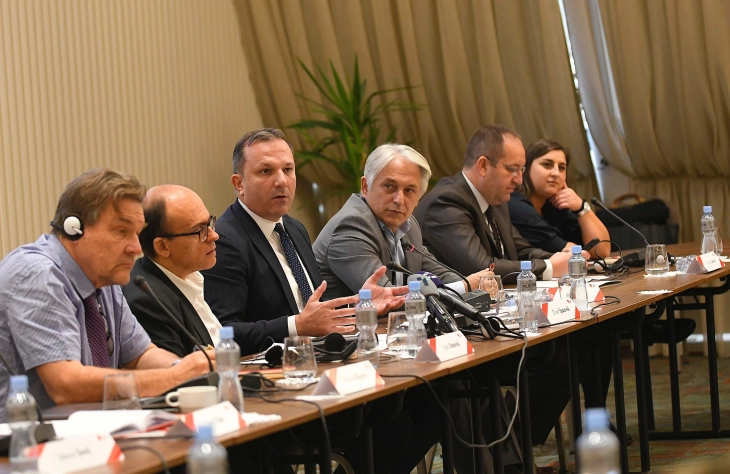Interior Minister Oliver Spasovski addressed the regional conference on European security, stressing the Ministry’s vigilant monitoring of developments and the current stable security situation. The event was organized by the Progress Institute for Social Democracy and the Finnish Kalevi Sorsa Foundation.
Spasovski highlighted various interconnected security threats, including asymmetric, hybrid, cyber threats, and challenges from non-military sources like natural disasters and technological catastrophes in today’s globalized era. He stressed the need for Macedonia to continually build resilience and capabilities to tackle identified risks and security issues.
He specifically pointed out hybrid attacks, which manipulate power centers to gain influence and spread uncertainty and distrust in public institutions. Spasovski referenced difficulties faced by Macedonia during the COVID-19 epidemic, Russian aggression against Ukraine, and the EU and NATO membership processes.
Macedonia’s adoption of the Strategy for Building Resilience and Dealing with Hybrid Threats aligned with EU recommendations, involving various actions to combat such threats and misinformation. Spasovski highlighted the Ministry’s efforts in countering over 964 bogus reports, targeting more than 720 locations, and emphasized the Ministry’s commitment to combatting organized crime, corruption, and enhancing financial investigations. He also discussed the country’s collaboration with NATO allies, addressing misinformation and reinforcing border security through agreements with Frontex.
Spasovski expressed confidence in meeting EU accession benchmarks, aiming for ongoing reforms and adherence to European standards to bolster security and improve the quality of life for citizens.





Comments are closed for this post.